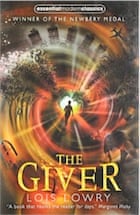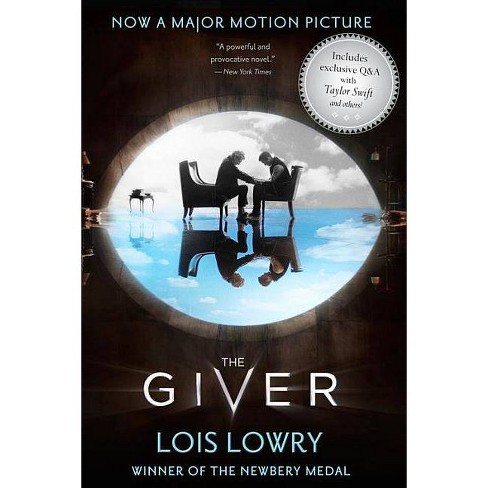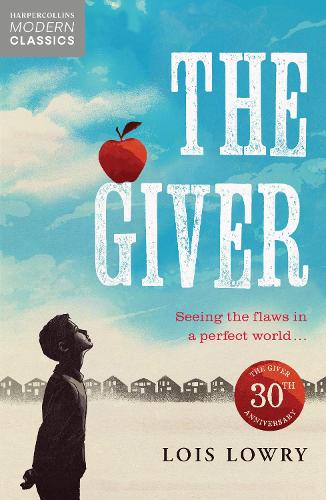
1994 Newbery winner, The Giver, by Lois Lowry is a book that is often cited as an all time favorite. It is a hard book too, but one that you are so glad you read. Young Jonas lives in a future world without pain or suffering, but when he is chosen to become the keeper of the society’s painful memories, he realizes the cost and deception that has stolen the color and true joy from the world.
It’s one of the best known and loved books of dystopian fiction for young adults and children, for good reason. It’s very well written, with a well-paced unfolding mystery, a sharp critique on the utopian society within the book which exposes the costs of avoiding all painful things, and an artistically ambiguous ending.

What were some limitations. I, however, did not like the ending. Not because it’s not a good ending, just because I, as a matter of personal taste, don’t like ambiguous endings. There are of course other difficult moments in the book (spoiler alert) like the revealing of infanticide and euthanasia for babies or elderly who are no longer fit for work, but I think what keeps the book from being in my personal favorites is the ending. I don’t know if Jonas dies at the end, is waking from a dream, or truly has found a home. This same ending endears some people to the book as one of its best parts, so again, it’s not that it’s not a good ending, it’s just not one that makes it my favorite. Also as a note, I haven’t read the other three books that came out later in the quartet.

What I liked I think the world that Lowry builds with the family unit and ways that the audience discovers it is so brilliant. It has world building and mystery revealing all rolled into one, which is one of the things that dystopian novels do best. Years after I first read the book as a child, I could recall the feel of the world that she created.

What was interesting. It has one of the earliest examples of what has often become an “obligatory scene” (a term used by Shawn Coyne in his wonderful Story Grid book and editing philosophy): the selection ceremony. You can see selection ceremonies in later middle grade and YA dystopia books like The City of Ember by Jeanne DuPrau (2003) and The Hunger Games by Suzanne Collins (2008) and Divergent by Veronica Roth (2011). (And it’s not just dystopian novels that have selection ceremonies: Harry Potter‘s sorting hat is one of the most iconic sorting ceremonies.) The selection ceremony in The Giver both is a window into the way Jonas’ world works (what are the jobs that are available) as well as why Jonas is unusual (his job is only given once a generation, and something went terribly wrong last time it was assigned).

Similarity to other Newbery winners. The second half of A Wrinkle in Time largely takes place in a dystopian society on the dark planet Camazotz, and it’s the Newbery that probably has the most in common with The Giver. And obviously Lois Lowry’s other book that won the Newbery three years before, Number the Stars, shares some similar characteristics of Lowry’s style: gentle handling of a very mature topic, a brave child who is wise and self-sacrificial and has to save the adults. Other Newbery books that have a young boy challenging the system are The Whipping Boy and Maniac Magee.
What it teaches me as a writer. I think Lois Lowry’s ability to develop plot and setting together is so masterful. Through Jonas’ eyes, we learn about the community, the physical layout, and the sociological one as he physically moves about his space into new places, like the Giver’s quarters or the lab where his father works, and sees new things, literally, like color. This is so seamlessly done, but I imagine that it was a lot of work to plan, create, and edit for the author.

Have you read The Giver? What are your favorite dystopian novels, especially YA ones?
*Note* This post contains Amazon affiliate links, which means if you were to buy a book, I’d get a tiny commission at no cost to you. Thanks for supporting Stories & Thyme!*